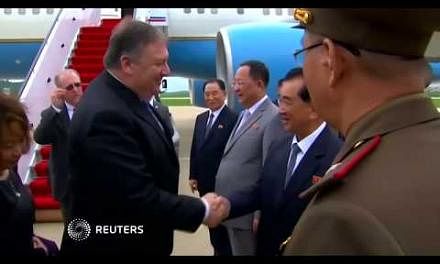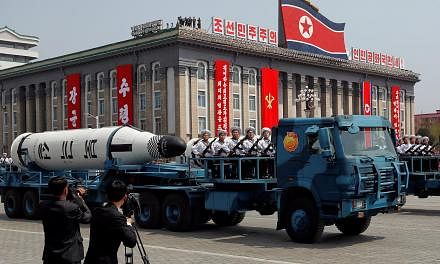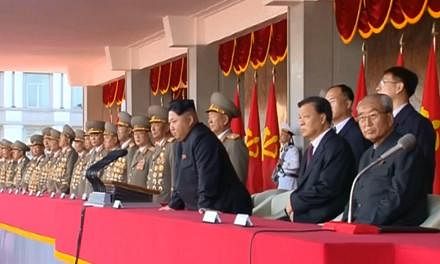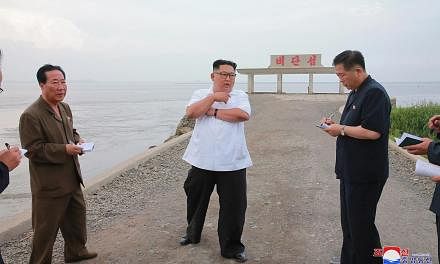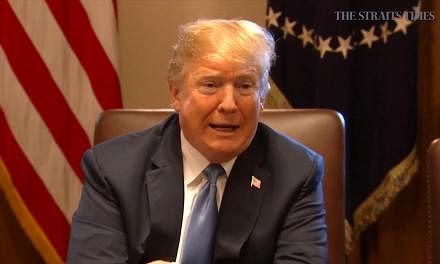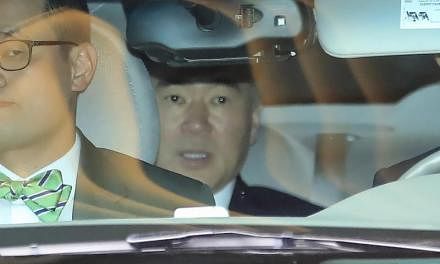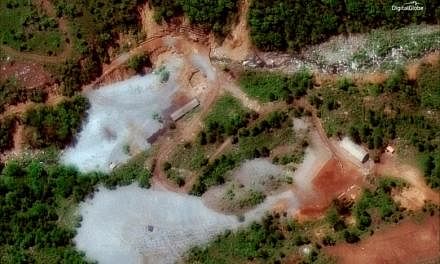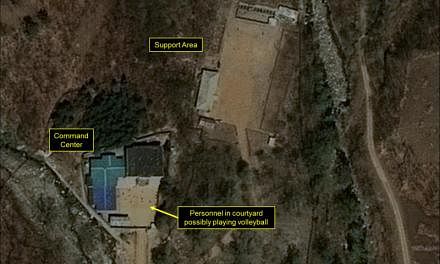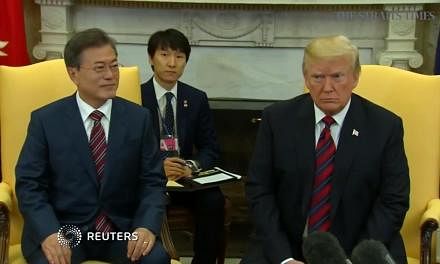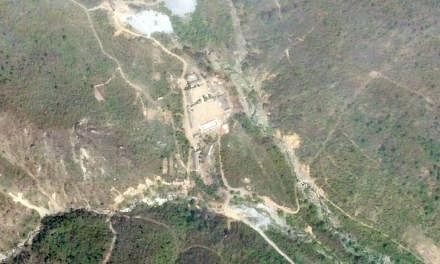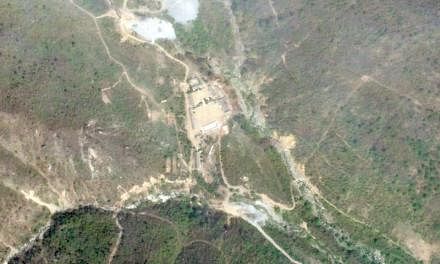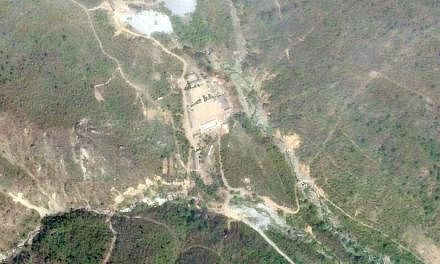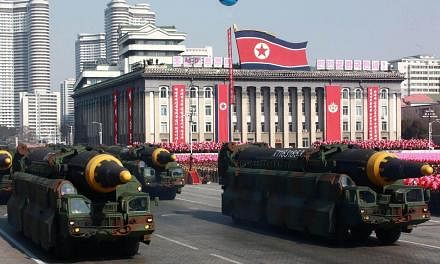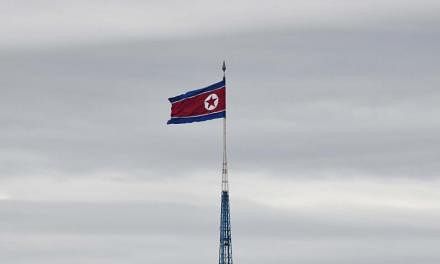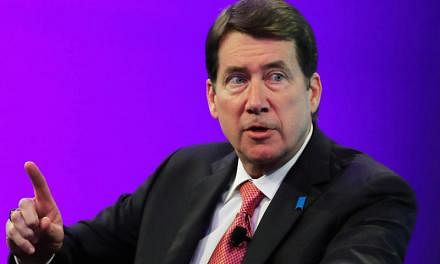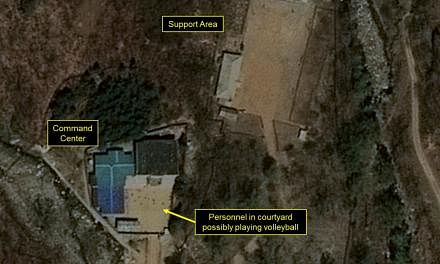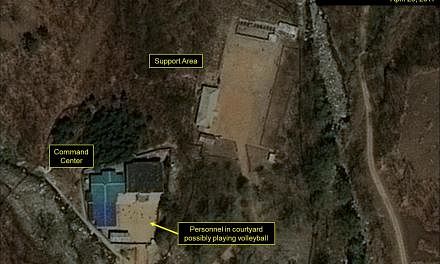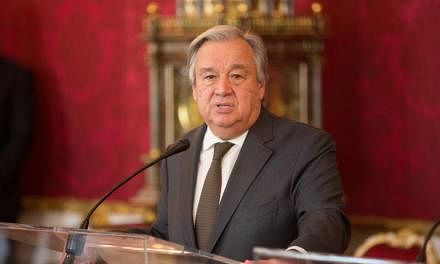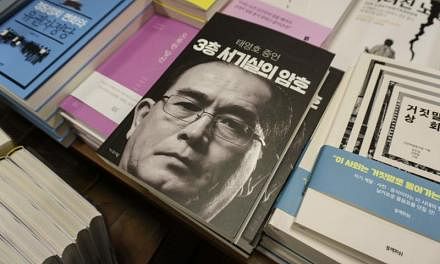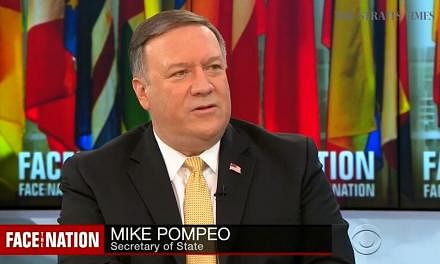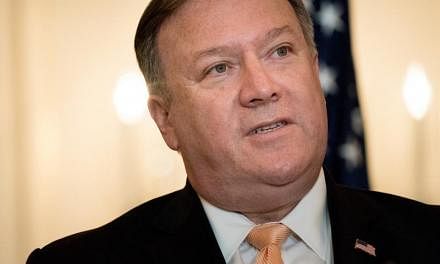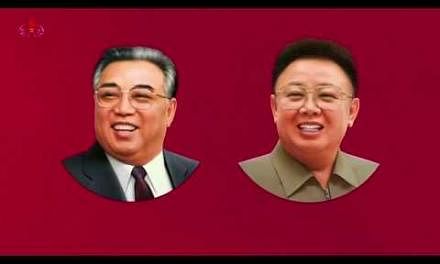While China and South Korea have largely applauded North Korea's abrupt attempts at reconciliation, Japan is doggedly unconvinced.
It is wary of Pyongyang hijacking the Pyeongchang Winter Games with the attendance of Ms Kim Yo Jong, the only sister of North Korean leader Kim Jong Un.
Japanese Foreign Minister Taro Kono, during his visits to Singapore and Brunei, reiterated that the world should not be fooled by the North's "smile diplomacy".
In an editorial, the conservative Yomiuri Shimbun slammed as unacceptable the North's "exploitation" of the Winter Olympics.
"Sports events should keep a distance from politics. This fundamental principle has been distorted," it said.
In the editorial last Friday, the newspaper warned that the lifting of sanctions allowing for the North's participation in the Games - however temporarily - is the start of a dangerous, slippery slope.
"Such concessions could be endlessly expanded," it said, with South Korean President Moon Jae In's conciliatory attitude in effect jeopardising the "maximum pressure" campaign pushed by the United States and Japan.
Japan has repeatedly pointed to history as proof of how North Korea has swindled its way to win concessions without giving up its missile and nuclear programmes, and is sceptical that this time would be any different.
But Tokyo could soon be the lone voice in stressing that "dialogue for the sake of dialogue is pointless".
The US appears to have softened its hardline stance, with Vice-President Mike Pence saying the Trump administration would keep up its "maximum pressure campaign", but still be open to possible talks at the same time.
He adopted this softer tone despite having ignored Ms Kim's presence the entire weekend at the Winter Olympics, even though at some point they were in the same room.
But China, which remains North Korea's largest economic benefactor, although it has imposed United Nations sanctions on the reclusive state, saw the positives.
Foreign Ministry spokesman Geng Shuang said yesterday: "The easing of tension on the peninsula at this moment is hard to come by and should be greatly cherished and safeguarded by all parties."
He hoped both sides take efforts to extend dialogue to "an uninterrupted, daily conversation" and sow the seeds for talks between North Korea and the US.
Former UN secretary-general Ban Ki Moon also espoused this message of peace.
Mr Ban told China's Xinhua news agency he hoped that the two Koreas can further enhance cooperation, leading to in-depth dialogue that can promote reconciliation.
Both the China Daily and the Global Times called for sustained improvements in the situation on the Korean Peninsula, although the China Daily also warned against being quick to forget the North's belligerence, including its brazen military parade on the eve of the Winter Olympics.
Japanese citizens, however, remain largely sceptical.
A poll by the Senkei Shimbun said two-thirds believe South Korea was "untrustworthy" as a diplomatic partner, also partially owing to Seoul's dredging up of historical issues again last month.
Nearly three-quarters are in favour of keeping up the "maximum pressure" campaign, with nine in 10 concerned that the end of the Games will herald a resumption in ballistic missile and nuclear tests.
A poll in the Yomiuri Shimbun showed 83 per cent doubted that the North's participation in the Games would lead to the dismantling of its nuclear weaponry.
SEE HOME

